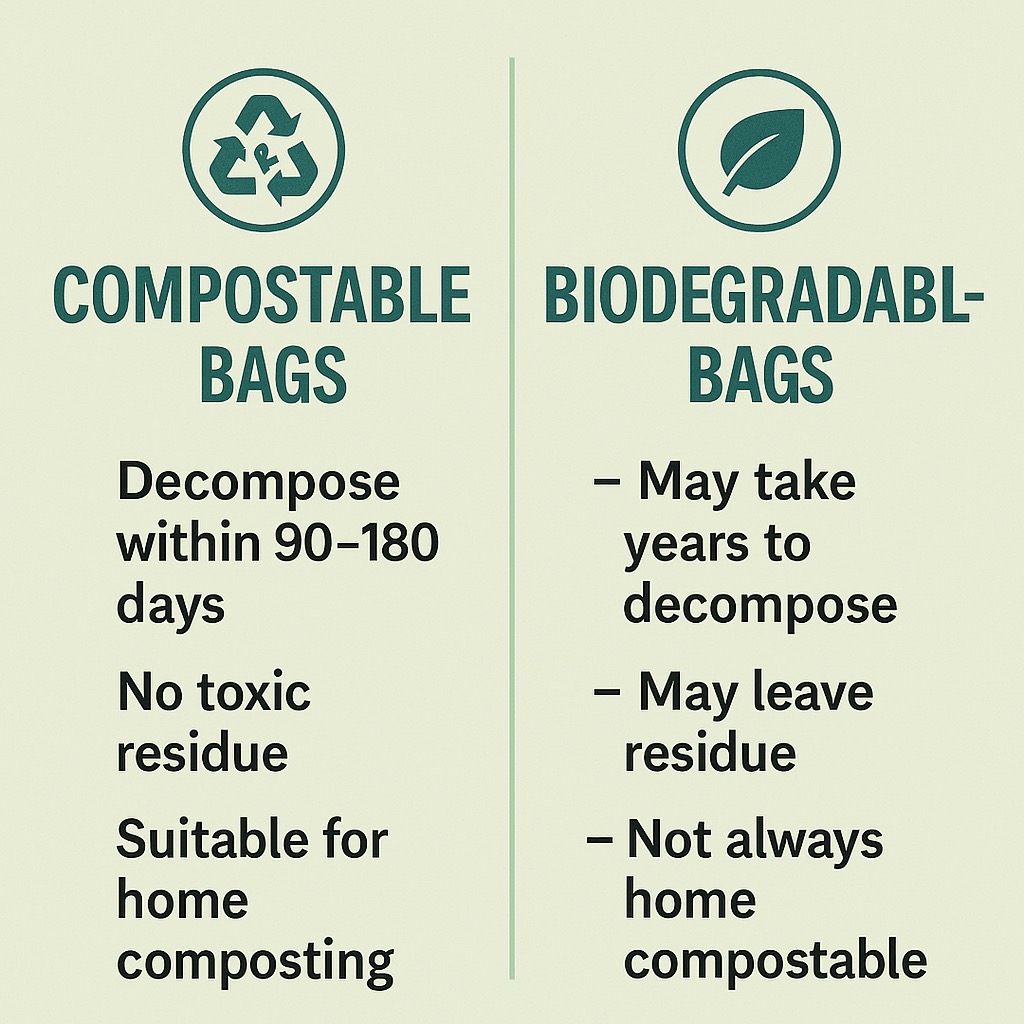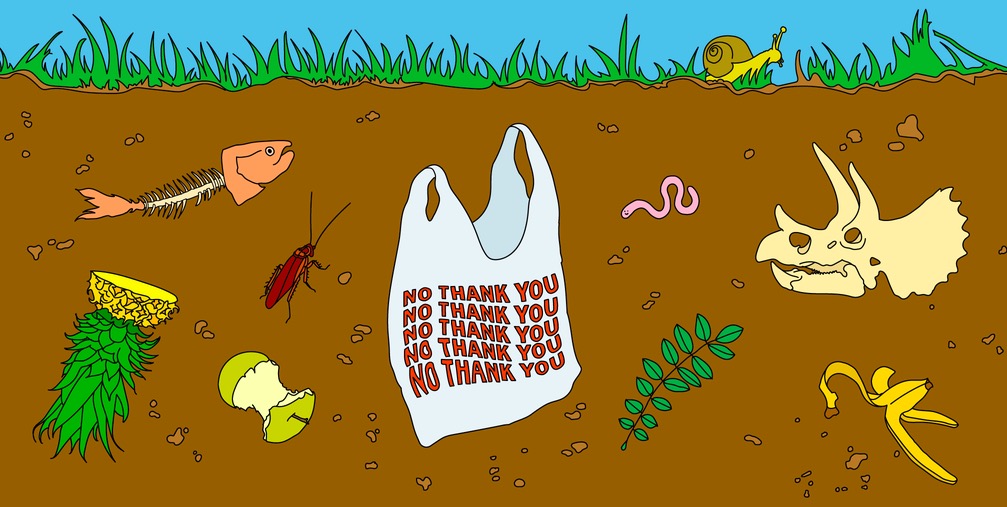As more businesses and consumers shift toward sustainable practices, compostable bags have become a popular alternative to plastic. But what exactly makes a bag compostable—and how can you be sure it meets environmental standards?
In this article, we’ll explain what defines a compostable bag, explore the key certifications to look for, and help you understand when and where compostable bags work best.
What Is a Compostable Bag?
A compostable bag is made from plant-based or organic materials that break down into natural elements under the right conditions. Unlike regular plastic bags, compostable bags decompose in compost bins or commercial composting facilities, leaving no harmful residue behind.
There are two main types of compostable bags:
- Home compostable bags: Designed to break down in backyard compost bins at lower temperatures.
- Industrial compostable bags: Require higher temperatures and controlled conditions, typically found in commercial composting facilities.
Key Certifications to Know

Not all “eco-friendly” bags are truly compostable. Look for these certifications to make sure you’re buying genuine compostable bags:
- Home Compost Certification (e.g., TÜV Austria OK compost HOME): Confirms the bag will degrade in a home composting system.
- BPI Certification (Biodegradable Products Institute): Recognized in the U.S. for products that meet ASTM D6400 standards.
- TÜV Industrial Certification: Verifies that the bag meets industrial composting requirements.
These certifications help ensure that the product breaks down safely and supports your environmental goals.
Why Compostable Doesn’t Mean Biodegradable

Many people confuse “compostable” with “biodegradable,” but they are not the same. While biodegradable bags break down over time, they might still leave microplastics in the environment. Compostable bags, on the other hand, are specifically designed to turn into nutrient-rich compost without leaving behind plastic waste.
That’s why compostable trash bags, compostable vest carrier bags, and compostable food packaging bags are better choices for anyone looking to reduce plastic waste.
When Are Compostable Bags the Right Choice?
Here are a few examples where compostable bags offer real value:
- Household use: Products like 15-litre biodegradable bin bags or 100 biodegradable trash bags are great for kitchen bins or food waste collection.
- Retail and grocery stores: Compostable vest carrier bags are increasingly popular as a replacement for plastic shopping bags.
- Pet waste: Biobag dog waste bags or Amazon compostable dog poop bags are designed for responsible pet owners.
- Commercial use: 240-litre biodegradable bags or compostable trash bags bulk are used by restaurants, hotels, and waste service providers.
Compostable bags also play an important role in food service, where compostable mailers and food packaging reduce landfill contributions.
Consider the End of Life
Where the bag ends up is just as important as what it’s made from. Compostable bags work best in places where organic waste is collected separately—whether that’s your backyard compost bin or a municipal food waste system.
For example, if a shop sells compost in 20-litre bags, using compostable packaging ensures the entire product supports a closed-loop system.
Final Thoughts: Is It Worth Making the Switch?
If you’re looking to reduce your environmental impact, compostable bags are a clear improvement over plastic. They’re especially effective when paired with home composting or commercial composting systems, and they’re available in a wide range of sizes and types—from 100 compostable mailers to biodegradable kitchen bin liners.
Make sure to buy from a compostable plastic bags company that offers certified, high-quality options that align with your values.

